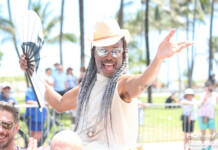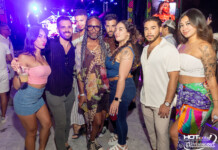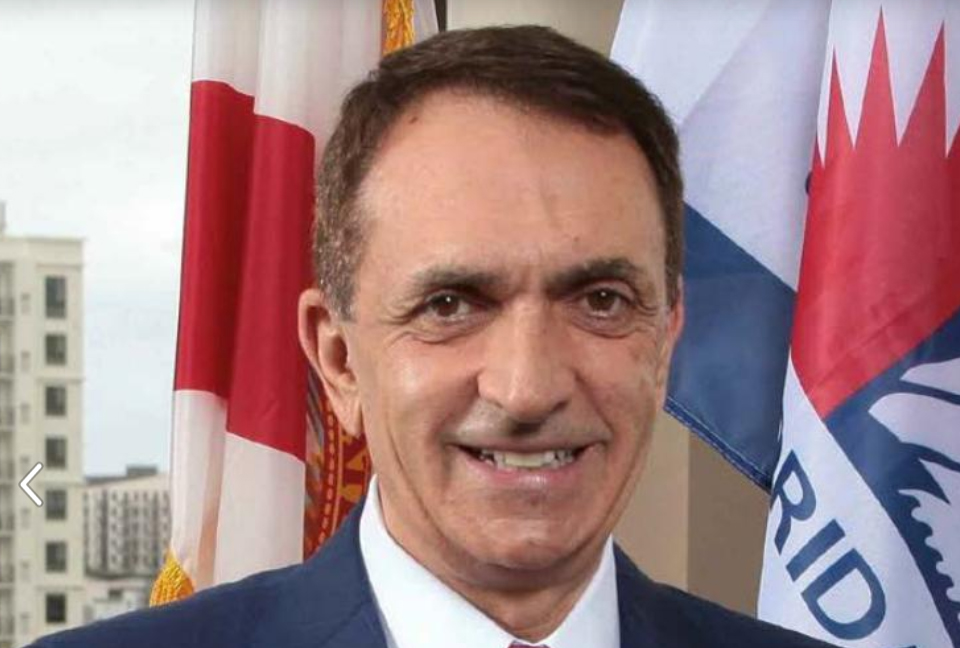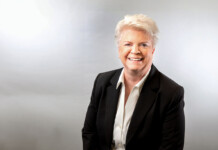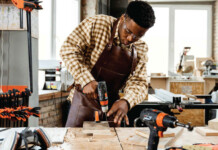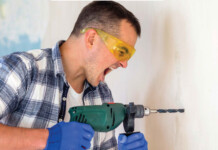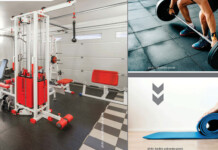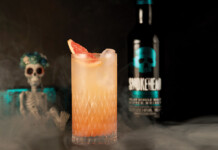CLICK HERE TO WATCH THE VIDEO
You can hear the excitement in Dean Trantalis’ voice when he talks about the future of Fort Lauderdale. The mayor, 67, sees a shining, diverse and welcoming city by the sea with a thriving tourism industry and modern infrastructure, including tunnels to ease traffic congestion and accommodate future growth.
Riding a wave of popularity for his effective handling of the COVID-19 pandemic, Trantalis — who has the distinction of being Fort Lauderdale’s first gay mayor but would rather be known as a mayor first who happens to be gay — has won respect for a string of accomplishments. These include inking a deal with David Beckham’s Inter Miami organization to build a stadium and bring professional soccer to Fort Lauderdale; the renovation of the aquatic center as a world-class diving facility ideal for hosting international events; and attracting the Panthers professional ice hockey team who are constructing hockey rinks in Holiday Park — all raising Fort Lauderdale’s ranking as one of America’s best small cities.
A successful attorney with an office on Wilton Drive in Wilton Manors, Trantalis is humble about his other first-term mayoral accomplishments including resolving the crumbling sewage system and cleaning up the city’s 300 miles of canals.
But Trantalis, a Democrat, has also faced criticism, first by gun rights advocates who protested the city’s cancellation of the War Memorial Auditorium as a venue for gun shows (a campaign promise Trantalis kept), and most recently for presenting a proclamation to the historically anti-LGBT Coral Ridge Presbyterian Church on the occasion of their 60th anniversary.
Hotspots asked the mayor about all these issues and more in a wide-ranging interview. Excerpts:
Hotspots: We’re finally seeing the light at the end of the tunnel where the Covid 19 pandemic is concerned. How is the city of Fort Lauderdale faring in terms of vaccine availability and community outreach?
Mayor: Well, COVID-19 certainly impacted our community from day one. March 15 of last year was when we finally agreed to close our beaches down and things have never been the same since, as everybody knows. We’ve worked very closely with the Governor’s Office from the start, first getting testing sites here in Fort Lauderdale, and we were among the first to get vaccination sites right here in the city. So, we’ve been very lucky. In terms of the vaccine availability, unfortunately, we can only get what the federal government gives out. So, we’ve done our best to try to increase the allotment here in our city. And the second thing is to try to encourage people to get the vaccine. It’s been a bit of a challenge in some areas. But overall, people are lining up to get the vaccines and we’re doing our best to make sure everyone is safe.
Hotspots: When do you foresee a loosening of some of the health guidelines?
Mayor: Working with the county, and trying to coordinate with the other 30 cities in the county, we’re looking at the end of April. Assuming that we continue with the vaccination progress that we have been [seeing], the county is looking to start to loosen up some of the restrictions by then because a good portion of the county will have gotten vaccinated. But I think the President said that they’re looking more towards the end of June, early July, to start bringing things back to normal.
Hotspots: You’ve been a highly popular mayor and you have the distinction of being endorsed twice by the editorial board of the Sun-Sentinel. What would you like to accomplish in your remaining second term as mayor?
Mayor: Well, we just began a four-year term. And the way the cycle works is that I could probably run for 12 years and serve for 12 years. But who knows what’s going to happen? But the reality is that there’s so much that we can accomplish even in the first term that I’m now serving the four years. We see so much progress in terms of the private sector in the public sector. You know, we’re looking to step back and say what are the needs today? What is COVID taught us, have our patterns of conduct changed? In terms of business every day, a lot of people are starting to stay home and work. A lot of people are home-schooling. So, we do realize that that’s going to change, people going to get back into their regular habits. And so, the state is looking to establish a commuter rail line, for example, on the existing Brightline tracks. That’s going to bring 30 to 40 more trains to the tracks. Can you imagine all those guard rails coming down every single 20 minutes? It would create havoc. So, there is a move afoot to see what we can do to try to try to eliminate that interference with the east-west traffic as well as the New River traffic.
We’re actually moving forward on a discussion concerning a tunnel — building a tunnel through the city, undergrounding those tracks so that Broward Boulevard, Sunrise Boulevard, 13th Street, and even Davie Boulevard will all be without the interference of those commuter lines. So, things like that are happening. We’re also looking at a tunnel between the Brightline station and [Fort Lauderdale] beach. You know, we went out to Las Vegas last month…
Hotspots: And this is where you have been speaking with Elon Musk?
Mayor: Exactly, his company. We met with his CEO, his geologists, his chief legal counsel. They came here and we went there. And we have a very aggressive conversation going on right now about building a series of tunnels. Their model is to build 12-foot tunnels. And they’d have Teslas, of course, with drivers taking you from point A to point B. So imagine a family coming to Fort Lauderdale that wants to go to the beach, say, from Coral Springs or Tamarac. They would park in the parking garage at the Brightline station and then be chauffeured to the beach… pack all the kids in the car and, and they’d be let out at the new Las Olas Oceanside Park, which is the perfect place to go to our beach. So that kind of conversation is happening. And that looks like probably one of the most successful things that we’ll be able to do in our city.
Hotspots: Prior to being elected mayor, your record on the City Commission has been that of wanting to slow growth and invest in the city’s infrastructure. Today, with the real estate market on fire and cranes everywhere, what is your view of Fort Lauderdale’s growth?
Mayor: We’re finally starting to catch up with the growth. As you know, because of COVID especially, there has been a huge interest in South Florida — in Fort Lauderdale, in particular. We are seeing a lot of activity in the real estate market. Because we fast-forwarded a lot of our infrastructure projects that were sitting there on the shelf doing nothing, in the last three years we’ve been able to catch up, in large measure, with the demand for new population moving into the area. So the main sewer line will be finished — the one that made headlines — its replacement will be finished probably in another 90 days and that will be the beginning of a series of projects… stormwater, wastewater, freshwater — and also cleaning up our waterways. We are moving aggressively in all those areas. And I think when people do come to move here, they’ll see a sparkling city and we certainly are best city in the state.
Interviewer: You won re-election of the strong performance in your first term with a string of account emplacements. Among them was the reimagining and renovation of the aquatic centre as a world-class, sports tourism-attracting facility. Which of your accomplishments are you most proud?
Mayor: Well, you know it’s a teamwork effort that accomplishes those things. This [Fort Lauderdale City] Commission was all on board to try to make Fort Lauderdale a very family-friendly kind of destination, so we are returning the excitement to the aquatic centre. The International Swimming Hall of Fame Committee is also building new museums on the same site. It’s moving forward in a very, very nice way. We also have attracted hockey to Fort Lauderdale. The Panther organization is building hockey rinks right in Holiday Park, for both practice as well as recreation for everybody in their family to use it. And, of course, the sterling example of one of our accomplishments has been able to attract world-class soccer to Fort Lauderdale. We have an MLS team that is now located in Fort Lauderdale, right by the executive airport. The Inter Miami David Beckham organization built a magnificent stadium which will be there for generations to come. So, we’re very excited about these accomplishments. And, and it was like, as if they were waiting to happen. This Commission really took it upon itself and made sure that happened.
Hotspots: The top three issues in your re-election campaign were managing the COVID pandemic, completing the rebuilding of the city’s infrastructure, and improving Fort Lauderdale’s quality of life and environment. Tell us about the efforts being made to combat climate change and improve the environment…
Mayor: In terms of improving the environment, I’ve lived here almost 40 years and I noticed that our waterways have always been neglected. We’ve taken them for granted. I see boaters dumping in them, you know, they’ve become open sewers in some respects. We have aggressively engaged, first of all, in a testing program. We go around testing our waterways in certain areas, every single week now. And there are some trouble spots — there’s no doubt about that. This Commission plans to aggressively clean up our waterways so that they become swimmable again, so that marine life returns to the area, so that we have a thriving ecology between our systems and the wildlife that exists in and around the waterways so that we can once again feel proud about who we are — the “Venice of America”, correct? That really is all part of working with climate change initiatives. So, we have started in many ways to rebuild our infrastructure with water, sewer lines, which were all eaten up by the saltwater intrusion. We’re now replacing all those pipes to make sure that they can withstand the intrusion of the saltwater impact. But rising sea level, you can’t push back the ocean. All you can do is to try to accommodate as much as possible. We’re spending over $60 million in the next three years to deal with stormwater retention and discharge, trying to make sure that neighbourhoods don’t get flooded again. This past November we saw a significant amount of flooding in areas that hadn’t flooded in decades. But those freak events are no longer freakish events. They are occurring again and again. So we have our work cut out for us. It can’t be done in a year or two. I hope the people of our community are patient and they know that their commission, their government, is working aggressively and trying to make sure that the changes we make today are going to last for generations to come.
Hotspots: Sir, you put an end to the gun show at the War Memorial Auditorium, which was a campaign promise of yours. Why was that issue important to you?
Mayor: It was important to us because being a center where the implements of violence are being marketed — especially where kids are playing, you know, we have Holiday Park there — it just was the wrong message. It was the wrong event. I’m very appreciative of the fact that this commission was all in agreement that we did not want to continue leasing. That property is our property, we should be able to do what we want. And I think that a lot of people feel a lot safer not having [the Gun Show] in our backyard. I know we got some pushback from some gun enthusiasts. But in the end, I think Fort Lauderdale, overall, is appreciative that the Gun Show has moved on.
Interviewer: This should be totally unimportant, but it’s hard to dismiss the fact that you are Fort Lauderdale’s first gay Mayor. Have you found that you’ve had to work harder, even harder than normal, to win approval?
Mayor: You know, it’s a good question. I think through life, that is correct. I think anybody who is identified as a minority always finds himself having to work a little bit harder to prove themselves. Perhaps that’s why a lot of us have achieved a lot in our lifetimes, because we work a little harder. But in my campaigns, people were more focused on the issues — city issues, on traffic, pollution, development, infrastructure, the Bahia Mar… All of those became important issues and had nothing to do with my sexual orientation. So I think more and more people see me as a mayor who happens to be gay. I didn’t come here with a gay agenda. But I certainly am here to protect our rights, should they ever be compromised or threatened. I know that I feel very proud to represent Fort Lauderdale because of its diversity, because of its acceptance, embracing people from all walks of life. And, and to some extent, I think I represent that image that is Fort Lauderdale.
Hotspots: You entered elected office 21 years ago, in 2003, when being a gay candidate was less acceptable than it is today. What have you learned? And what advice would you give to young aspiring LGBTQ candidates seeking public office?
Mayor: So an individual who wants to go into public office, whether they’re a racial minority or a gender minority or sexual orientation minority, I think that if you focus on neighborhood issues, city issues… people at least in Fort Lauderdale, people really don’t care, you know, whether you’re gay or straight, as long as you are comfortable with the issues… that you have answers and solutions, and you had the energy to try to affect change. And that is ultimately to your point of trying to improve quality of life. And I think that quality of life issues are always going to be forefront — it could be traffic, it could mean cleaning up our waterways, it could be sports activities, it could be so many things. If the electorate believes in you and thinks that you have answers and that you have your heart in the right place, then you’ll be a successful candidate.
Hotspots: You’ve been praised for your efforts to build bridges in the community but recently there was some criticism by factions within the LGBTQ community, because you presented a proclamation at a city commission meeting. This was in recognition, of the 60th anniversary of the Coral Ridge Presbyterian Church and the 50th anniversary of the Westminster Academy, its affiliated school, both of which have been historically anti-LGBTQ. How do you address that issue?
Mayor: [Fort Lauderdale City] Commissioner [Heather] Moraitis asked for that proclamation — and the mayor signs all proclamations — when she approached us to do the proclamation, it was her church, and it was her school that she attended… There has been a very unstable history, shall I say, between the LGBT community and that organization. I was out there on the sidewalks protesting against the practices of the previous minister D. James Kennedy. I remember, one Sunday, we were out there and right behind us were the church-goers and across the street were the skinheads brandishing their baseball bats. If not for the phalanx of police officers, we would probably have had our heads bashed in.
But you know, those were dicey times. And, unfortunately, that did occur in our community. But it is in the past and there are new leaders — and even leaders within the organizations are struggling with their more radical elements. But I thought it was important to extend an olive branch. I thought it was important to reach out. And actually, for the last four years, I have been meeting with folks from that organization, from Calvary Chapel, from other members of the Christian fundamentalist movement.
For the last four years, ever since we had that mayor’s prayer breakfast which I refused to attend, because I thought it was offensive to have a person from the outside speak and represent an organization that was so anti-gay, it was really offensive to me personally. But as after that event occurred, I immediately picked up the phone, and I called the organizer, and I said, we can’t have this in our community. We can’t have divisiveness. We can’t have hatred in our community. Let’s sit and talk. How are we going to make this better? And that person was Stefan Tchividjian, who was Billy Graham’s grandson, who has a ministry here in Fort Lauderdale. He was very eager to sit and talk. And we did and we talked, and we continued to talk. And we included other members of the fundamentalist Christian movement from the First Baptist Church, Calvary Chapel, as well as the Coral Ridge Presbyterian Church. And it wasn’t just me. We actually brought people from the LGBT faith-based community… we all sat together and said, ‘we need to move forward and try to build a future based on love and not on hate’. And everyone was in agreement on that.
And as we were moving closer on trying to create an event that would reflect the kind of spirit and goals that we were hoping to achieve, COVID came and so everything stopped. So the situation with the proclamation came before us, and I’ve never refused a commissioner what they’re asking for, and I know it made it look as though the gay mayor of Fort Lauderdale was capitulating to a former enemy of our community. But we need to move past that. I have, and I know a lot of people in our community have, and they don’t really want to be stuck in the past. I know that a lot of people say maybe you should have gotten an apology from them first. Well, unfortunately, it doesn’t work that way. We need to kind of be the better people here in a way, and to try to move past it into and to shake hands and say, you know, let’s try to build a better community by working together. So, this is the first step. This revealed to the community the efforts that we’ve been making these last few years. And I intend to take that movement forward. I hope that we can continue to build bridges and to connect this community rather than create divisions that we’ve suffered from in the past.
Hotspots: Well said, Mayor… “building bridges”. That’s something we’d love to see in a Governor! Are there any ambitions beyond the mayoral role you play?
Mayor: I love being mayor of Fort Lauderdale. That’s where my mind is right now. And and we have a lot to do. There’s still a lot to do even in the LGBT community. We have bridges to build within our own community. As we’ve grown, we’ve discovered how diverse we are and we have a lot of work to do, especially amongst the transgender community and homeless youth. So many issues. A lot of people come to Fort Lauderdale thinking that they’re going to get help here. They certainly get acceptance here. And I welcome that, because we want people to have a place to call home and feel comfortable. We have a magnificent Pride Center where people can come and feel like everyone’s like them. And that’s important because acceptance is all part of personal growth. I think that Fort Lauderdale really creates an environment in which people can feel really good about who they are.

